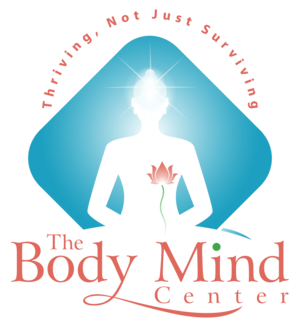EMDR: How It Helps with PTSD Symptoms
Healing from PTSD used to be long and difficult, with many people struggling to address their trauma for years after the event, and undergoing what was often emotionally exhausting therapy. At times, reliving the traumatic events was debilitating.
But today, new therapeutic approaches to PTSD treatment have been developed and are becoming increasingly popular. EMDR is such a Therapy.
EMDR stands for “eye movement desensitization and reprocessing.” This approach to therapy has been around since the 1980’s and has been extensively researched
involves combining reflections on trauma with bilateral stimulation, such as eye movements, tapping, etc. to help the brain reprocess painful memories; the goal being to clear the “congestion” created by trauma from the thinking, feeling and body brains.
Here’s how EMDR can help people with PTSD heal from trauma.
Accelerated Therapy
In traditional talk therapy, it can take months, or in some cases, even years, for people with PTSD to see significant improvements. But EMDR helps to accelerate the healing process.
This does not mean that EMDR therapists rush their patients through healing. Rather, the techniques used in EMDR sessions are simply very effective. For some who suffer from PTSD, it only takes a couple of sessions to see major improvements in their quality of life. Others find near-complete relief from their symptoms after a few consistent sessions.
Finding New Meaning
Thinking back on a traumatic memory can be very painful. But for trauma survivors, finding a way to assign a new meaning to these memories is crucial for healing.
During EMDR therapy, a person with PTSD will have the opportunity to associate positive thoughts and feelings with the memories of their past. When they no longer feel distressed upon recounting a particular event, their therapist will guide them to reflect on a positive feeling to create a new association.
Gaining Personal Insight
During a typical talk therapy session, the therapist and client will go back and forth and discuss insights that they have gleaned from the client’s reflections during that session.
But during EMDR therapy, the patient has a higher degree of autonomy and independence. Their feelings and experiences direct how the session will proceed. This can be very empowering for them. Rather than waiting for the therapist to provide insight, they gain this insight from their own personal reflections.
Avoiding Being Re-traumatized
Someone who is attending talk therapy for PTSD may need to recount their traumatic experiences several times in detail. For some, this is doable. On the other hand, others who have suffered trauma find that it can worsen their symptoms and even cause them to feel like they are in the midst of the experience all over again.
During EMDR therapy, the individual will still have to discuss the traumatic events they’ve experienced with their therapist. However, they will not necessarily have to recount explicit details. Instead, most of their reflection on these events will be internal. After the therapist and client have identified target memories for sessions, the client will process these events independently. Sometimes, this can protect them from experiencing the more severe effects of recounting trauma.
Symptom Management
EMDR therapy is not just about becoming empowered or focusing on positive associations over negative ones. It’s also about learning to manage symptoms of PTSD so that trauma sufferers can regulate their emotions and feel safe in their everyday lives.
The client will learn about healthy coping mechanisms and other ways to improve their quality of life. Even after they have made noticeable progress, the client and therapist will work together to discuss potential future events that could cause a resurgence of symptoms, as well as strategies for dealing with them.
—
Are you interested in pursuing EMDR therapy to treat PTSD or a related condition? Please reach out to me to find out if EMDR is right for you and how it could help you personally with reclaiming your life.

